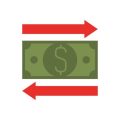1. Understanding the Basics of Renting vs. Buying
What Does It Mean to Rent or Buy a Home in the U.S.?
Before making the big decision between renting and buying, it’s important to understand what each option really means, especially in the American housing market. Renting a home means you pay a landlord every month to live in their property, while buying a home means you purchase the property and become its legal owner.
Key Differences: Renting vs. Buying
| Renting | Buying | |
|---|---|---|
| Ownership | You don’t own the property; you pay to use it. | You own the property and build equity over time. |
| Upfront Costs | Usually just a security deposit and maybe first & last month’s rent. | Down payment (often 3-20% of price), closing costs, and other fees. |
| Monthly Payments | Monthly rent, sometimes with utilities included. | Mortgage payments (principal + interest), plus taxes and insurance. |
| Repairs & Maintenance | The landlord is generally responsible. | You’re responsible for all repairs and upkeep. |
| Flexibility | Easier to move out after lease ends (usually 12 months). | Selling can take time and comes with extra costs. |
| Tax Benefits | No major tax benefits for renters. | Homeowners may get tax deductions for mortgage interest and property taxes. |
The Typical Process for Each Option
Renting:
- Find available rentals through websites, realtors, or word of mouth.
- Fill out an application (with background/credit checks).
- If approved, sign a lease agreement with your landlord.
- Pay required deposits and start monthly rent payments.
Buying:
- Get pre-approved for a mortgage from a lender.
- Work with a real estate agent to find homes within your budget.
- Make an offer on a home you like; negotiate if necessary.
- If accepted, complete inspections and finalize your mortgage loan.
- Sign closing documents and receive the keys to your new home!
Your Rights & Responsibilities in the U.S.
| Renter’s Rights & Responsibilities | Homeowner’s Rights & Responsibilities | |
|---|---|---|
| Your Rights | The right to a safe, livable space; privacy; protection from unfair eviction under state laws. | The right to modify your home; sell or rent it out; enjoy any increase in value (equity). |
| Your Responsibilities | Pays rent on time; follows lease rules; notifies landlord of repairs needed; keeps property reasonably clean. | Pays mortgage and taxes; maintains the home; follows local laws (like noise ordinances or HOA rules); handles repairs and upgrades. |
2. Financial Implications and Affordability
Understanding the Real Costs: Renting vs. Buying
When youre deciding whether to rent or buy a home in the U.S., its crucial to understand all the financial factors involved. The true cost of renting and buying goes beyond just your monthly payment. Let’s break down the main expenses for each option so you can see what fits best with your budget and long-term goals.
Main Costs to Consider
| Cost Type | Renting | Buying |
|---|---|---|
| Upfront Payment | Security deposit (usually 1-2 months’ rent) | Down payment (typically 3%–20% of purchase price), closing costs |
| Monthly Payments | Rent, renters insurance, utilities (sometimes included) | Mortgage, homeowners insurance, property taxes, HOA fees, utilities |
| Maintenance & Repairs | Usually covered by landlord | You’re responsible for all repairs and upkeep |
| Taxes | N/A (covered by landlord) | Property taxes paid annually or through mortgage escrow |
| Other Fees | Possible application or pet fees | Homeowners association (HOA) fees, private mortgage insurance (PMI) if down payment is less than 20% |
How to Evaluate Your Budget
Renting:
Add up your expected monthly rent, any required renters insurance, and utility costs. Remember to factor in upfront costs like security deposits and possible application fees. Renting usually requires less cash upfront compared to buying.
Buying:
Calculate how much you can afford for a down payment—many buyers aim for 20%, but some loans allow lower amounts. Don’t forget closing costs (usually 2%-5% of the homes price), plus ongoing monthly payments for your mortgage, property taxes, homeowners insurance, maintenance, and possibly HOA fees. You’ll also need an emergency fund for unexpected repairs.
Your Long-Term Financial Goals Matter
If you plan to stay in one place for at least five years, buying may build more equity over time and potentially save money as home values rise. But if your job or lifestyle might change soon—or if you’d rather not deal with repairs—renting offers flexibility without long-term commitment.
Quick Comparison Table: Renting vs. Buying Affordability Factors
| Renting | Buying | |
|---|---|---|
| Upfront Costs Lower? | Yes | No (higher down payment) |
| Monthly Payment Predictable? | Usually (unless rent increases) | No (taxes/insurance can change) |
| Bears Maintenance Costs? | No (landlord does) | Yes (you do) |
| Builds Equity? | No | Yes (over time) |
| Easier to Move? | Yes (after lease ends) | No (need to sell home) |
Your Next Steps: Crunch the Numbers!
The best way to know what’s right for you is to look at your income, savings, debts, and future plans. Use online calculators or talk to a financial advisor to estimate what you can really afford—and remember that affordability isn’t just about the numbers, but about what feels comfortable for your life today and in the future.
![]()
3. Lifestyle Considerations and Flexibility
When deciding whether to rent or buy a home in the U.S., it’s important to think beyond just the financial side. Your lifestyle, job opportunities, sense of community, and even how you want your living space to look all play major roles. Let’s break down these factors so you can see how each option might fit your life.
Mobility and Relocation
If you value flexibility and expect to move for work or personal reasons, renting often makes more sense. Leases usually last 12 months, giving you the chance to move with less hassle and fewer costs. On the other hand, buying a home ties you down more, since selling a house can take time and comes with extra fees.
| Renting | Buying | |
|---|---|---|
| Ease of Moving | High — Just wait until your lease ends or pay a penalty to break it early. | Low — Need to sell the home, which can take months and involve extra expenses. |
| Job Flexibility | Great for people with careers that may require relocation or travel. | Better for those with stable jobs in one location. |
Career Opportunities
If your career is still developing or you work in an industry where moving is common (like tech, consulting, or academia), renting offers freedom. You can chase new opportunities without worrying about selling your home. Buying works best if your job is stable and you plan on staying put for several years.
Community Attachment
Renters may feel less attached to their neighborhoods because they know their stay is temporary. Homeowners are more likely to invest time in local activities, get to know neighbors, and participate in community events since they’re planning to stick around longer. Think about what matters most to you: do you want roots or do you prefer keeping your options open?
The Ability to Personalize Your Space
One big perk of owning a home is being able to make it truly yours — paint the walls any color, remodel the kitchen, or create your dream backyard. Renters usually face limits; landlords often restrict changes beyond basic decorating like hanging pictures or adding furniture. If making a space uniquely yours is important, buying gives you more freedom.
| Renting | Buying | |
|---|---|---|
| Personalization Options | Limited — Must follow landlord rules; major changes aren’t allowed. | Extensive — Remodel, renovate, and decorate as you wish. |
| Sense of Ownership | Temporary — You may not feel fully at home if you can’t make changes. | Permanent — You’re free to express yourself through your space. |
Weigh these lifestyle considerations carefully as you decide between renting and buying. The right choice depends on what fits best with where you are in life now — and where you hope to be in the future.
4. Current Real Estate Market Trends
What’s Happening in the U.S. Housing Market Right Now?
If you’re thinking about whether to rent or buy a home, it’s important to look at what’s going on in the real estate market today. Changes in interest rates, home prices, and rental demand can all play a big role in your decision. Let’s break down these trends so you can see how they might affect your next move.
Interest Rates: The Cost of Borrowing
Mortgage interest rates have been on a roller coaster over the past few years. After hitting historic lows, rates have climbed, making monthly payments higher for many buyers. Here’s a quick look:
| Year | Average 30-Year Fixed Rate |
|---|---|
| 2021 | ~3.0% |
| 2022 | ~5.0% |
| 2023 | ~6.5% – 7.0% |
| 2024 (so far) | 6.5% – 7.5% |
This means if you’re looking to buy, your loan will likely cost more each month than it would have a couple of years ago. For renters, rising mortgage rates may delay plans to buy, keeping more people in the rental market.
Home Prices: Still High but Starting to Stabilize
Home prices across the U.S. have soared since 2020 due to high demand and low supply. While growth is starting to slow in some areas, prices remain high in many cities, especially in places like California, Texas, and Florida.
How Home Price Trends Affect You
- Buyers: High prices mean bigger down payments and higher monthly costs.
- Renters: Some may choose to keep renting until prices cool off or their savings catch up.
Rental Demand: More Competition for Apartments and Houses
The rental market is hot right now. With more people waiting to buy homes due to high prices and interest rates, there’s increased demand for rentals—especially in popular cities and suburbs.
Current Rental Market Snapshot
| City/Region | Rental Price Trend (2023-2024) |
|---|---|
| New York City | ↑ Increasing |
| Austin, TX | ↑ Slight Increase |
| Phoenix, AZ | → Stable/Flattening |
| Nationwide Average | ↑ Gradual Increase |
This extra competition means rents are going up in many areas, which can make buying seem more attractive—even with higher mortgage rates—if you plan to stay long-term.
How These Trends Impact Your Decision
- If mortgage rates drop again or home prices start to fall, buying could become more affordable.
- If rental demand stays high and rents keep rising, locking in a fixed mortgage payment might help protect your budget in the future.
- If you’re not ready for a big down payment or want flexibility, renting could still make sense—especially if you expect home prices or interest rates to change soon.
The U.S. housing market is always changing, so it’s smart to keep an eye on these trends as you weigh your options between renting and buying.
5. Decision-Making Tools and Resources
Rent vs. Buy Calculators
One of the easiest ways to compare renting and buying is by using a rent vs. buy calculator. These online tools help you crunch the numbers based on your local housing market, interest rates, down payment, rent, and how long you plan to stay in your home. Here are some popular options:
| Calculator Name | Website | Key Features |
|---|---|---|
| Zillow Rent vs. Buy Calculator | zillow.com | User-friendly, allows customization of home price, rent, and more. |
| New York Times Rent vs. Buy Calculator | nytimes.com | Detailed breakdown of costs over time. |
| NerdWallet Rent vs. Buy Calculator | nerdwallet.com | Interactive charts and personalized recommendations. |
Evaluating Neighborhoods
The right neighborhood can make a big difference in your experience as a renter or homeowner. Consider these tips when evaluating areas:
- Research School Ratings: Use sites like GreatSchools.org to check school quality if you have kids or want to invest in an area with strong school districts.
- Check Crime Rates: Websites such as NeighborhoodScout or local police department pages provide crime statistics for specific ZIP codes.
- Amenities & Walkability: Use Walk Score (walkscore.com) to see how easy it is to access groceries, parks, restaurants, and public transportation.
- Future Development: Look up city planning websites for information about upcoming projects that could impact property values or quality of life.
- Visit at Different Times: Spend time in the neighborhood during weekdays, weekends, and evenings to get a full picture of noise levels and traffic patterns.
Consulting Real Estate Professionals
A licensed real estate agent or broker can provide invaluable advice whether youre considering renting or buying. Here’s how they can help:
| Professional Type | How They Help Renters | How They Help Buyers |
|---|---|---|
| Real Estate Agent/Broker | – Find rental listings – Negotiate lease terms – Explain tenant rights |
– Identify suitable homes – Guide through offer process – Negotiate purchase price – Assist with paperwork and inspections |
| Mortgage Lender/Advisor | – Explain credit requirements – Provide pre-qualification info (if thinking about buying later) |
– Pre-approve your loan – Explain mortgage options – Estimate monthly payments and closing costs |
| Property Manager/Landlord | – Answer questions about lease agreements – Provide maintenance support and community rules info |
N/A |
Questions to Ask Real Estate Professionals:
- What is the average rent or sale price in this area?
- Are there any hidden costs I should be aware of?
- What are the current market trends?
- If buying: What types of mortgage options are available to me?
- If renting: What’s included in the rent? Are pets allowed? How flexible are lease terms?


